Gardening is a rewarding and peaceful hobby, but finding the perfect trees to give you the shade and privacy you need for an enjoyable outdoor space can be hard.
After all, certain trees offer more coverage than others—some may provide beautiful foliage in the summertime, while other varieties might produce tasty fruit or quaint flowers in spring.
That’s why we’ve come up with a list of 13 ideal trees for your garden, sure to add beauty and provide the cover you want.
Each tree on this list offers something special regarding shade and additional benefits like ornamental qualities, scented blooms, firewood potential, or stunning autumn colors—the choice is yours!
So read on to learn about these great options available to select one that best suits your needs.
1. Eastern Redcedar (Juniperus virginiana) - Zones 2-9
The Eastern Redcedar is a versatile evergreen tree known for its dense foliage, which provides excellent shade and privacy.
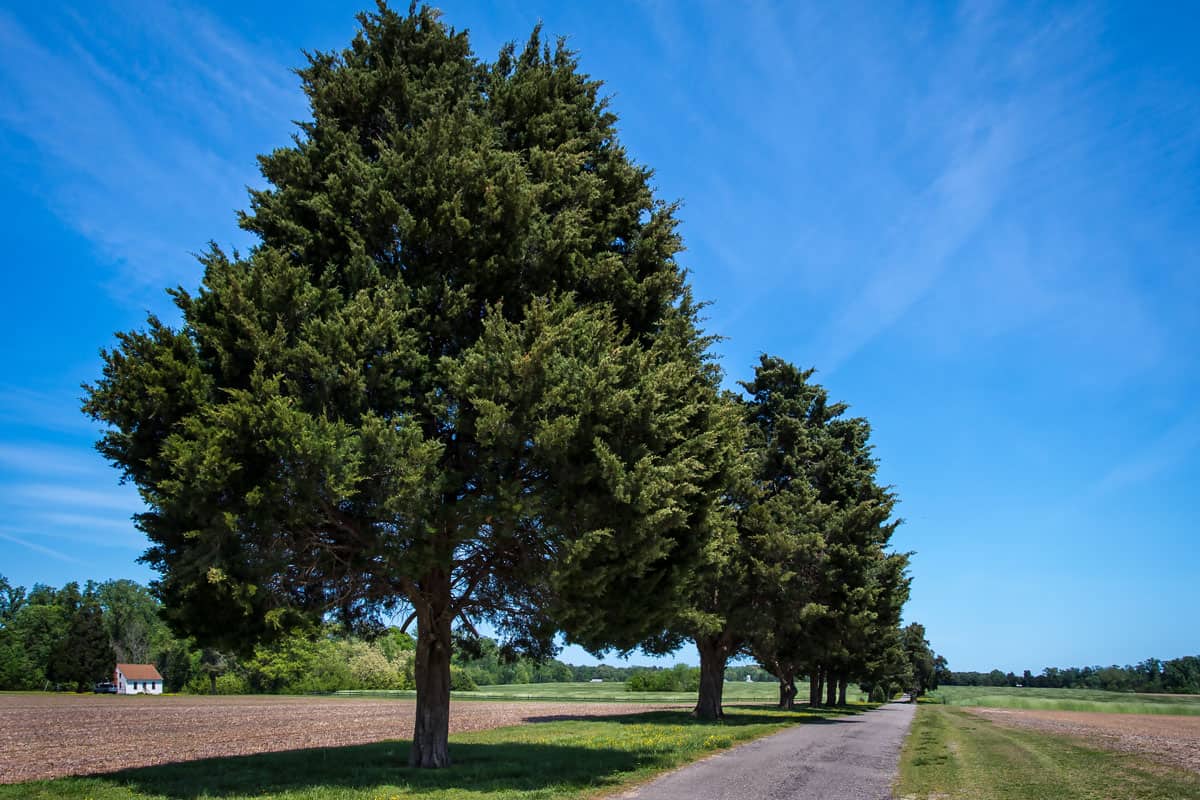
It thrives in various soil conditions and is highly adaptable to different climates.
This tree features attractive blue-green foliage and produces small berries that are a food source for birds.
2. Leyland Cypress (x Cupressocyparis leylandii) - Zones 6-10
Leyland Cypress is a fast-growing evergreen tree that forms a dense, tall screen, making it an ideal choice for privacy.
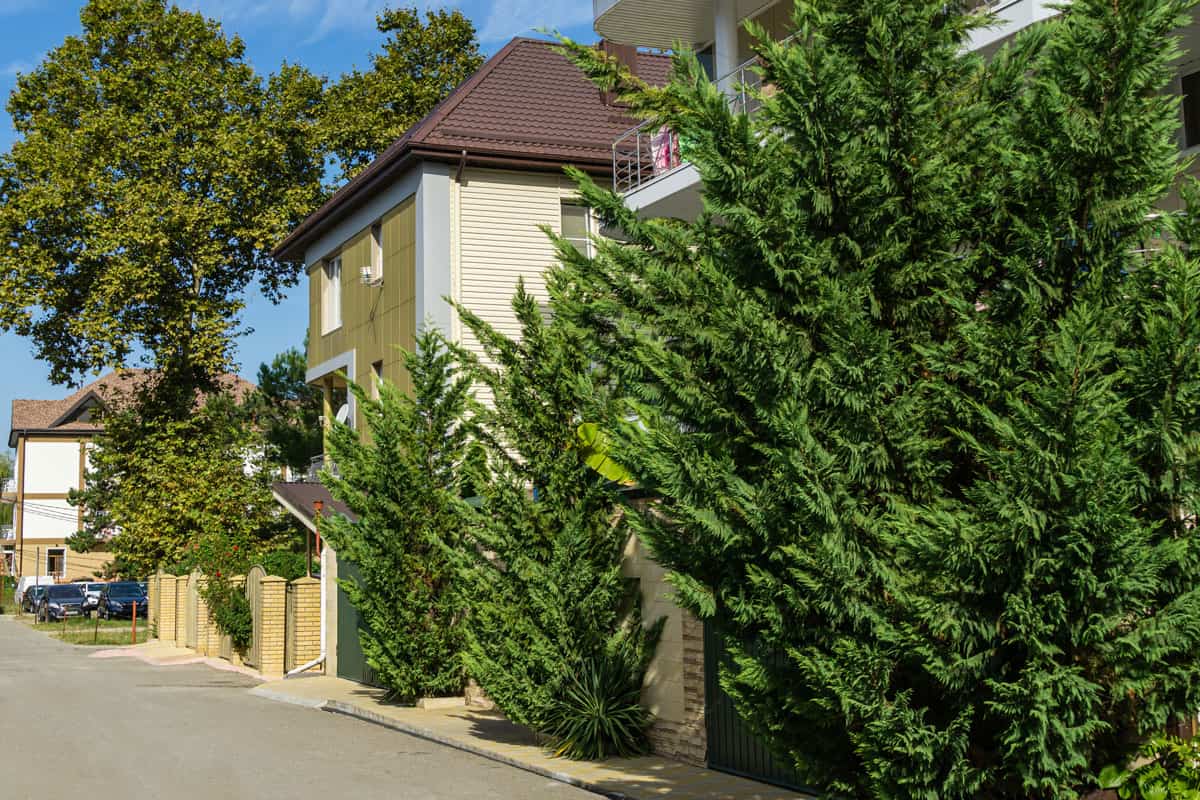
Its dark green foliage provides year-round coverage and can tolerate various soil conditions.
Leyland Cypress requires regular pruning to maintain its desired shape.
3. American Holly (Ilex opaca) - Zones 5-9
American Holly is an iconic tree with glossy, dark green leaves and vibrant red berries.
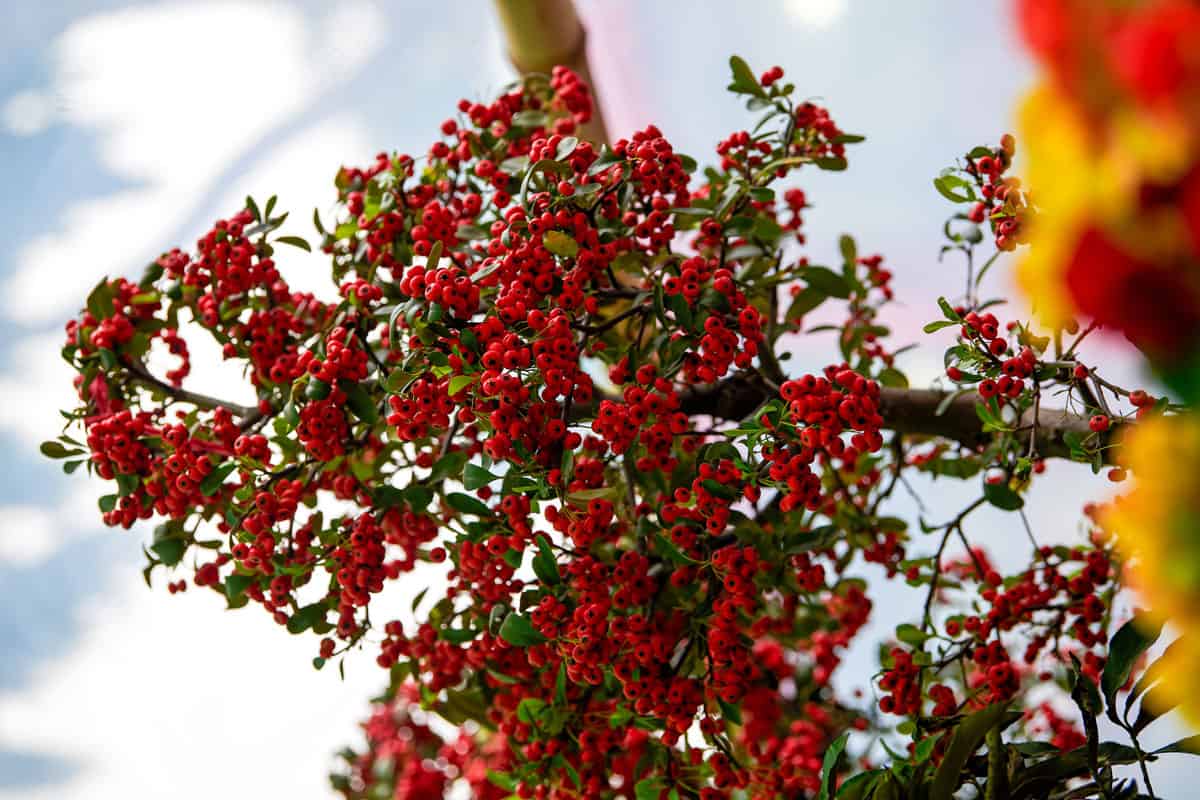
It offers both shade and privacy while adding beauty to your landscape. This evergreen tree prefers acidic, well-draining soil and partial shade.
Female trees produce attractive berries but require a male pollinator nearby.
4. Northern Red Oak (Quercus rubra) - Zones 4-9
The Northern Red Oak is a majestic shade tree with a broad canopy, ideal for large gardens.
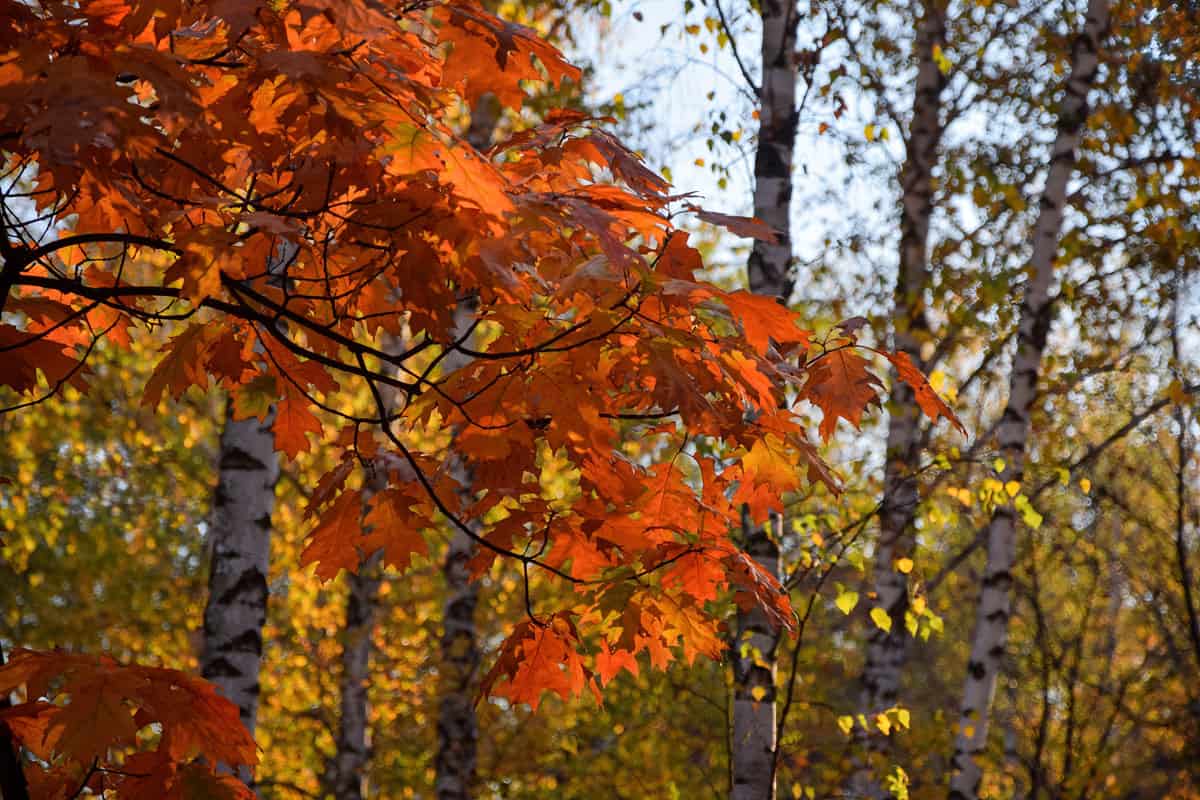
It features lobed leaves that turn a stunning red color in the fall.
This deciduous tree thrives in well-drained soil and full sun, providing ample shade during hot summer.
5. Southern Magnolia (Magnolia grandiflora) - Zones 6-10
The Southern Magnolia is renowned for its large, glossy leaves and fragrant white flowers.
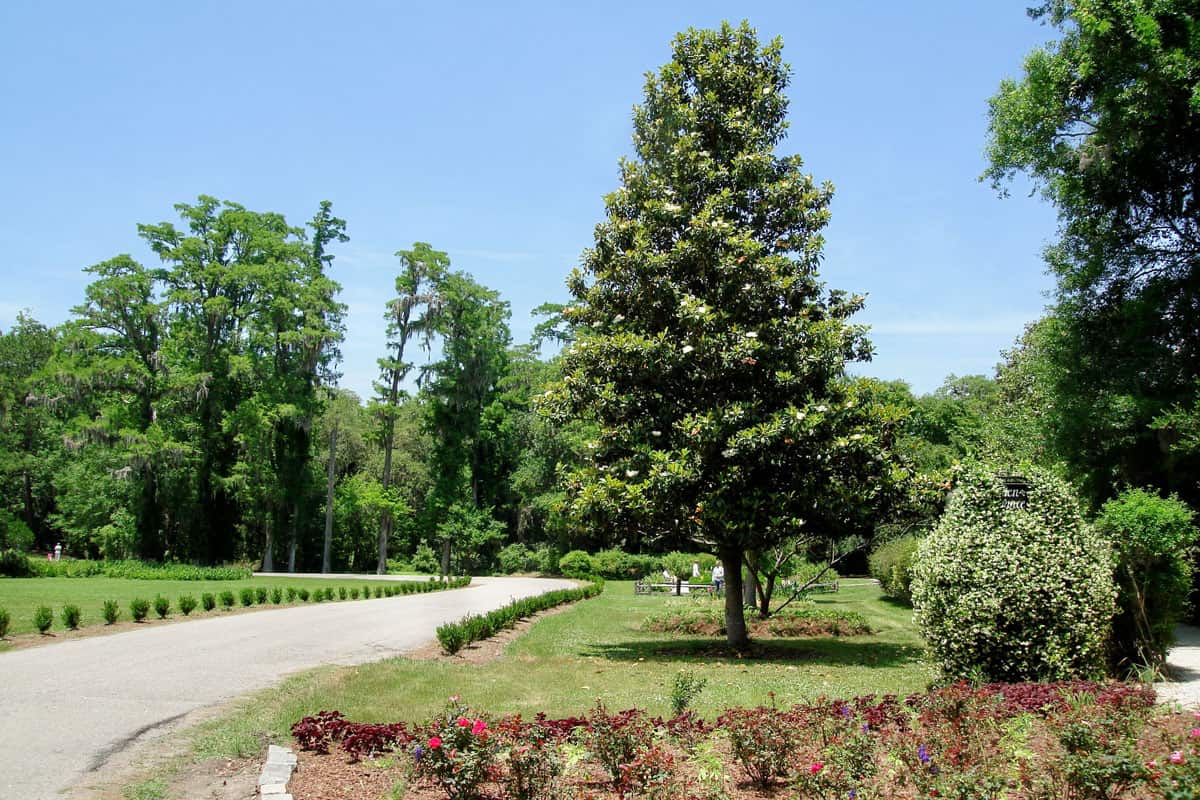
It offers shade and privacy with its dense foliage and can be a stunning focal point in any garden.
This evergreen tree prefers rich, well-drained soil and thrives in full sun to partial shade.
6. Green Giant Arborvitae (Thuja standishii x plicata 'Green Giant') - Zones 5-7
Green Giant Arborvitae is a popular choice for creating privacy screens due to its rapid growth and dense foliage.
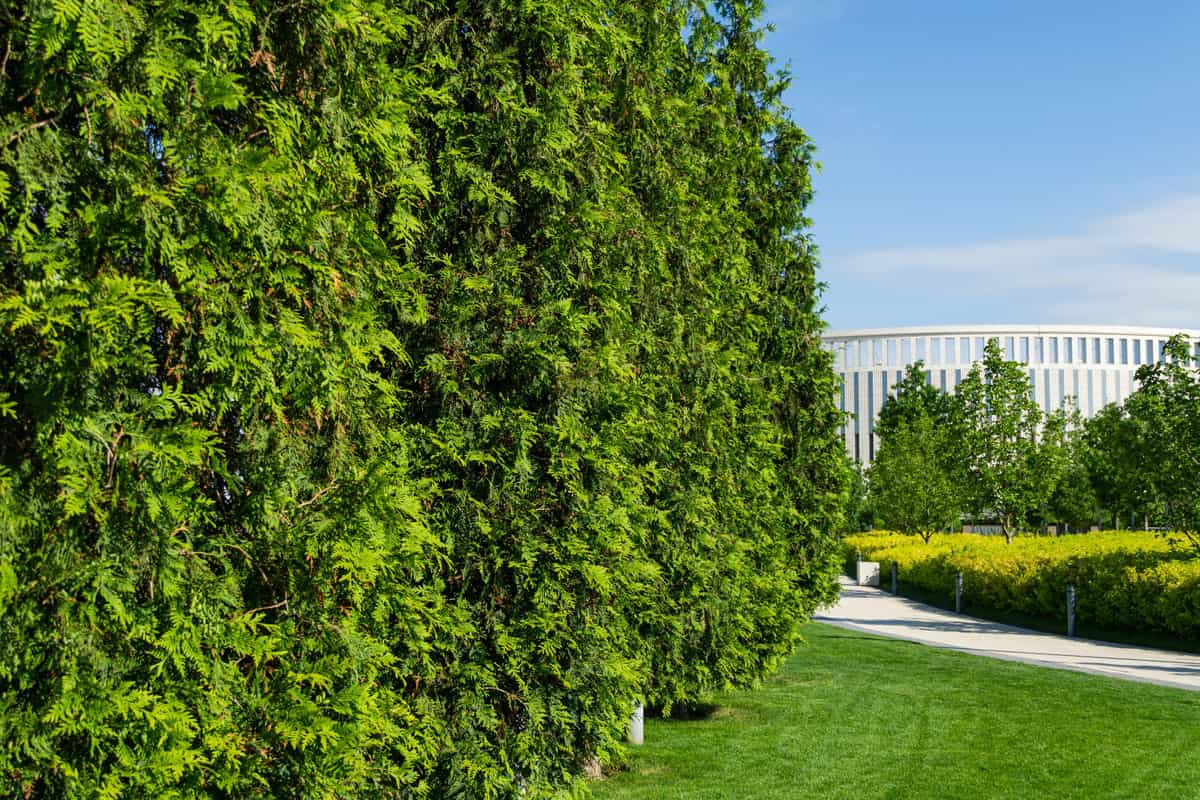
It forms a tall, narrow pyramid shape, providing excellent shade and noise reduction.
This evergreen tree is adaptable to various soil types and thrives in full sun.
7. White Pine (Pinus strobus) - Zones 3-8
White Pine is a large, fast-growing evergreen tree with ample shade and privacy. Its soft, bluish-green needles create a graceful appearance.
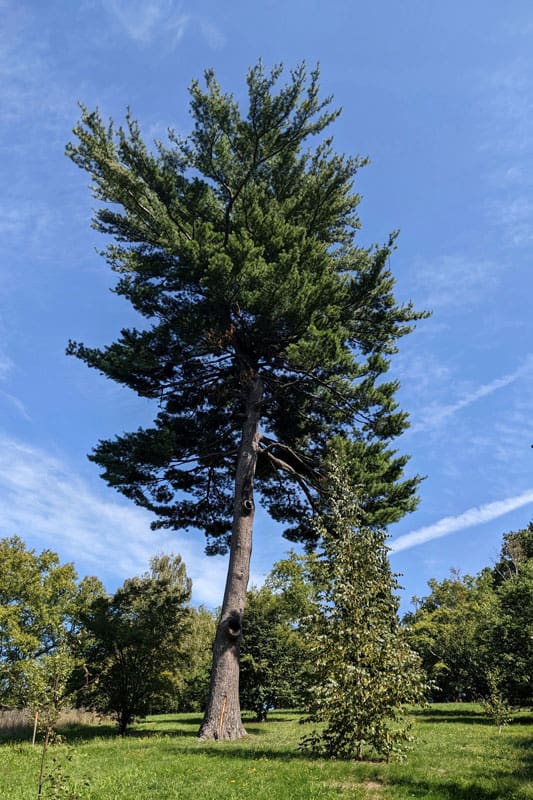
This tree prefers well-drained soil and full sun but can tolerate partial shade.
It also provides a habitat for wildlife and attracts birds.
8. American Sycamore (Platanus occidentalis) - Zones 4-9
The American Sycamore is a fast-growing deciduous tree known for its broad, spreading canopy.
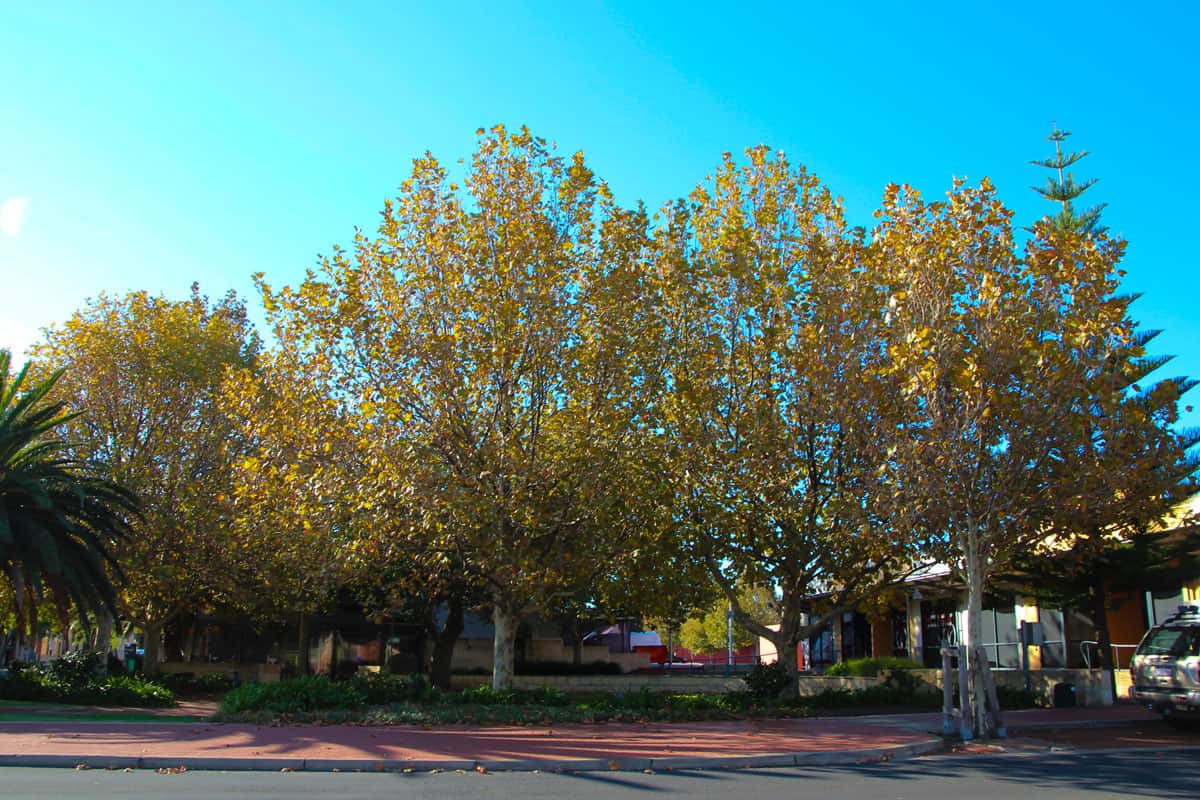
Its large, textured leaves provide abundant shade, making it an excellent choice for larger spaces.
This tree prefers moist, well-drained soil and full sun.
9. River Birch (Betula nigra) - Zones 4-9
River Birch is a beautiful tree valued for its unique exfoliating bark, which adds visual interest to any garden.
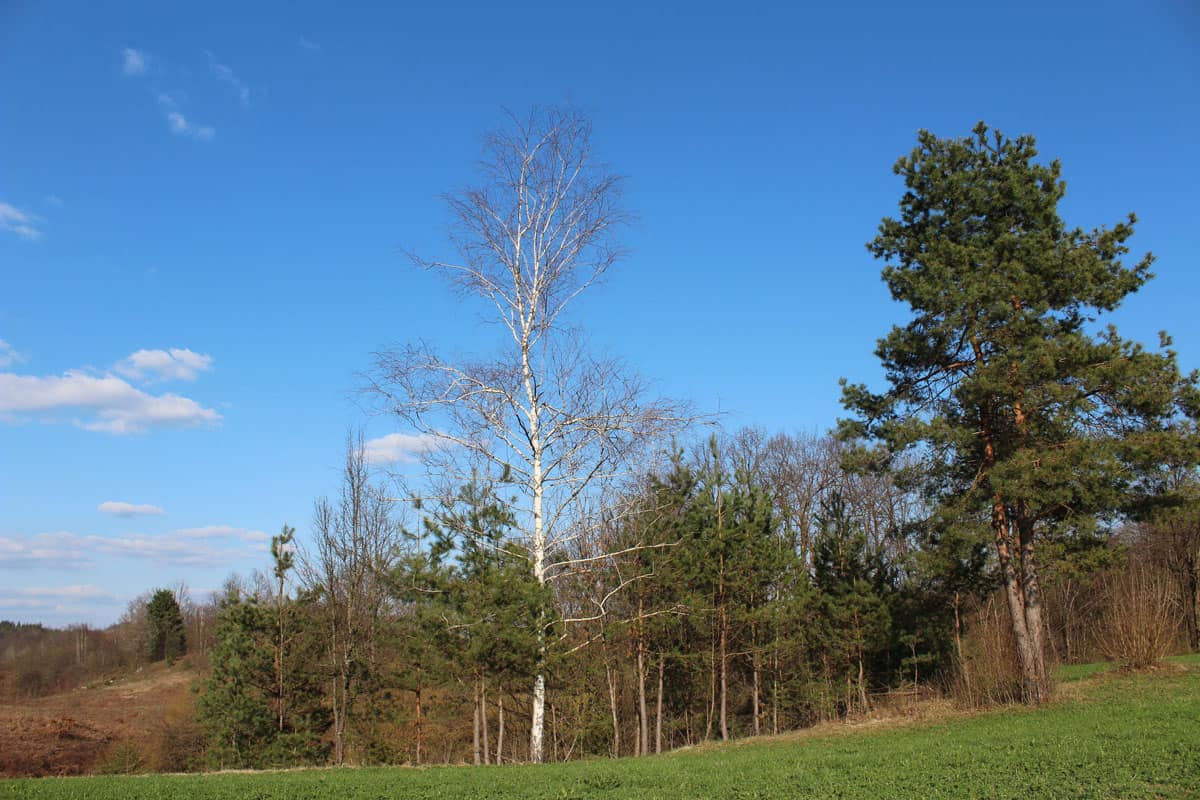
It offers shade and privacy while tolerating wet soil conditions, making it suitable for areas with poor drainage.
River Birch thrives in full sun to partial shade.
10. Paper Birch (Betula papyrifera) - Zones 2-6
Paper Birch is a deciduous tree with distinctive white bark that peels off in thin, papery layers.
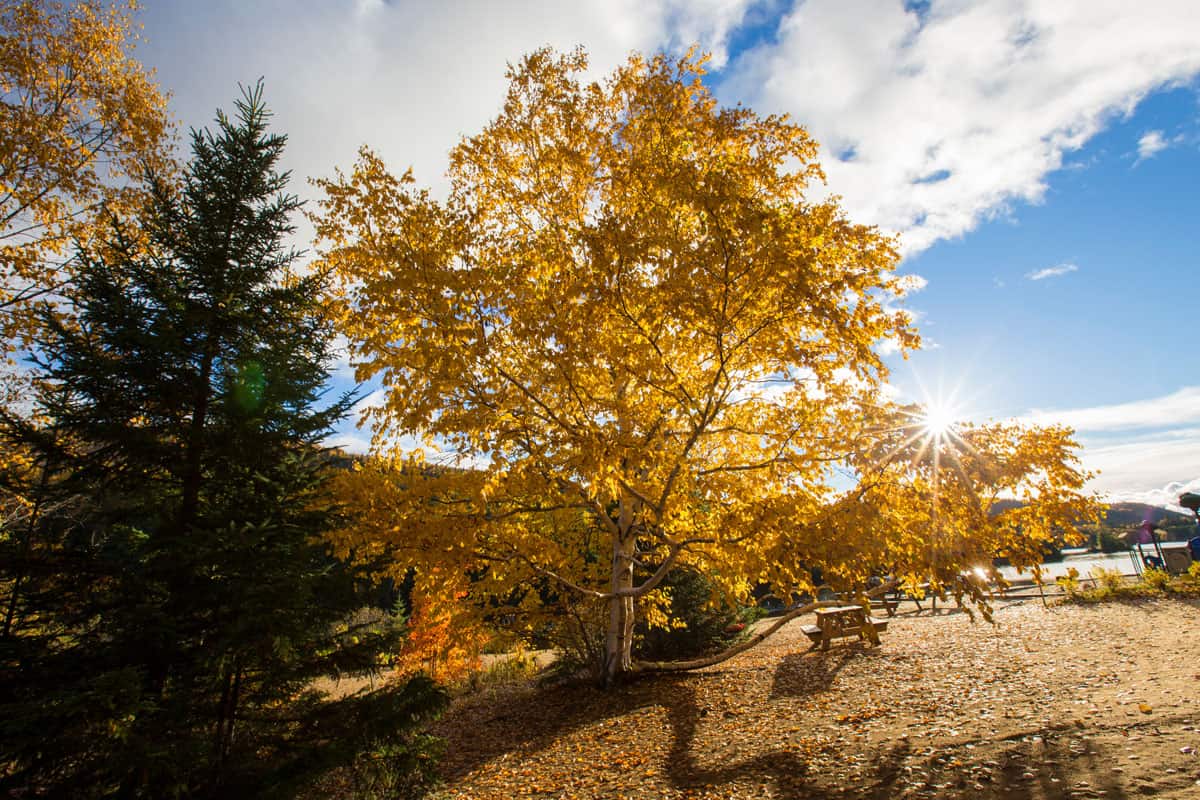
It provides shade and privacy while adding an elegant touch to the landscape.
This tree prefers well-drained soil and full sun to partial shade. It is more suitable for cooler climates.
11. Chinese Elm (Ulmus parvifolia) - Zones 5-9
The Chinese Elm is a medium-sized deciduous tree with a broad, rounded canopy.
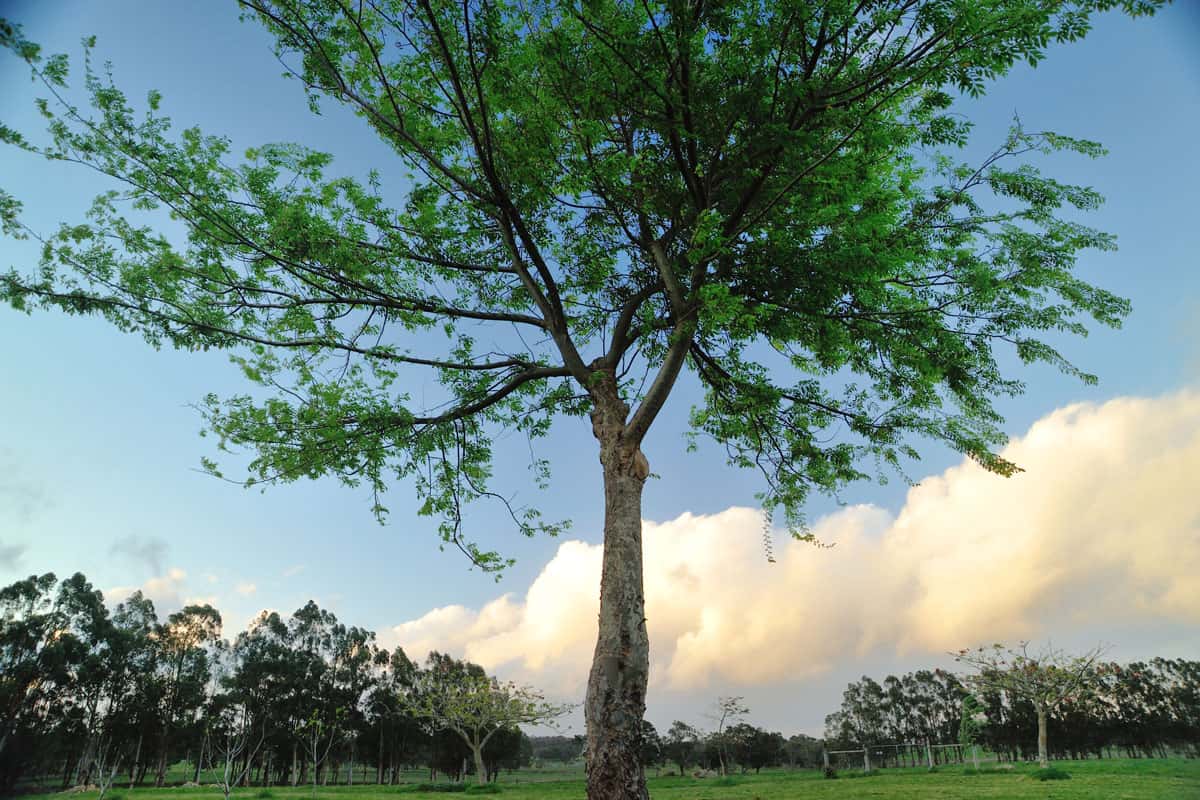
It offers ample shade and privacy and is known for its attractive mottled bark and serrated leaves. It prefers full sun to partial shade.
12. Norway Spruce (Picea abies) - Zones 3-7
Norway Spruce is a large evergreen tree that provides dense shade and privacy with its dark green needles.
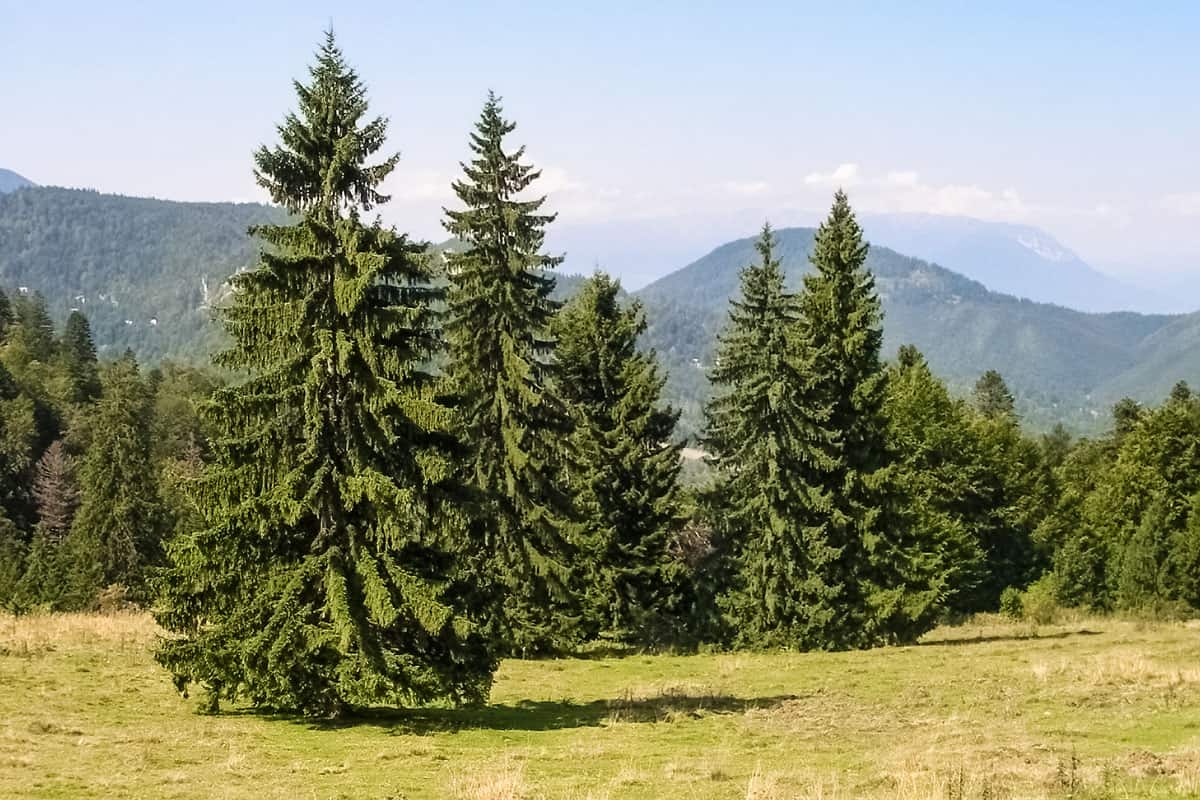
It has a pyramidal shape and is often used as a windbreak or screening tree. This tree prefers well-drained soil and full sun.
13. Tulip Tree (Liriodendron tulipifera) - Zones 4-9
The Tulip Tree, also known as Yellow Poplar, is a tall deciduous tree that offers abundant shade and privacy.
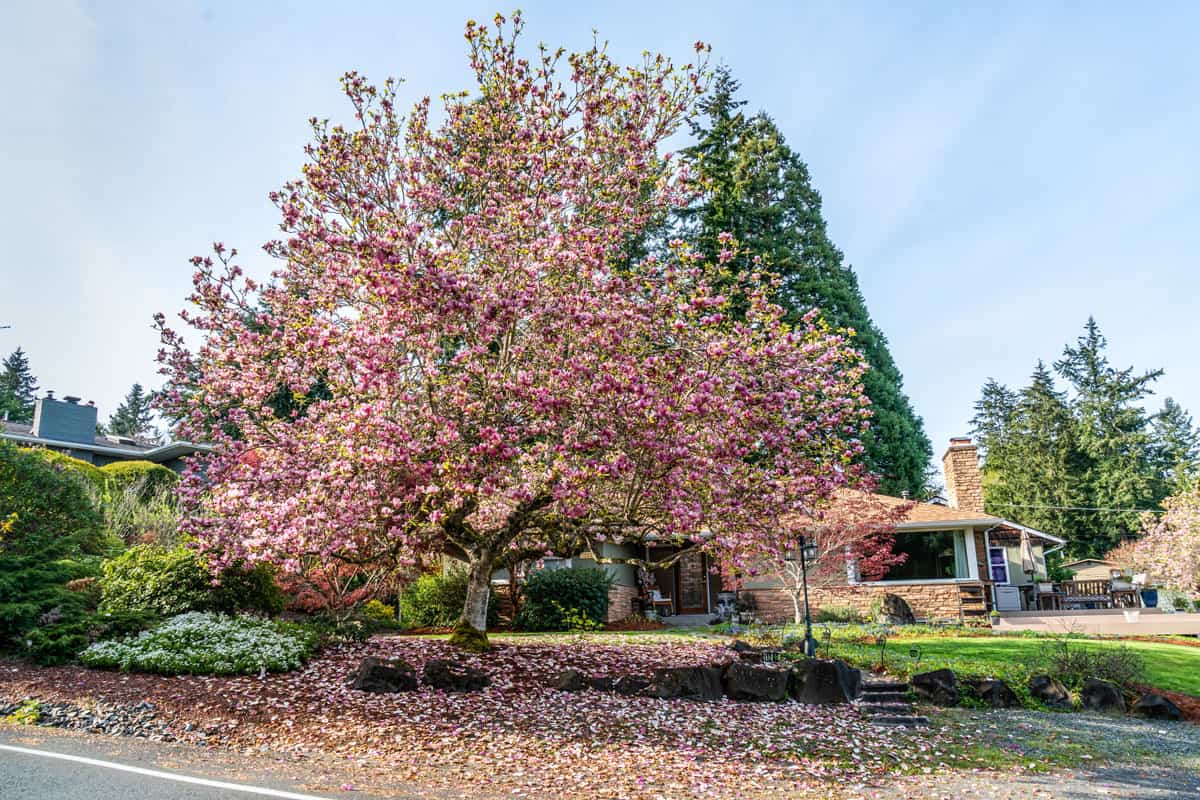
Its distinctive leaves are shaped like tulip flowers, producing attractive flowers in the spring.
This tree thrives in moist, well-drained soil and prefers full sun.
Read more!
Fast-Growing Evergreen Shade Trees
15 Low Maintenance Evergreen Shrubs For Your Garden
Ficus Hedge Vs Ficus Tree: What’s The Difference?
Your Perfect Tree
The beauty that trees add to any garden should be noticed. They provide much-needed shade from the harsh rays of the sun.
Trees also help reduce noise pollution, providing an environment of peace and relaxation.
With so many varieties, it is important to consider hardiness, size, and the amount of shade created.
Each tree above has unique benefits, so consider them when determining which will work best for you and your garden.
A little research can help you find your perfect tree.
